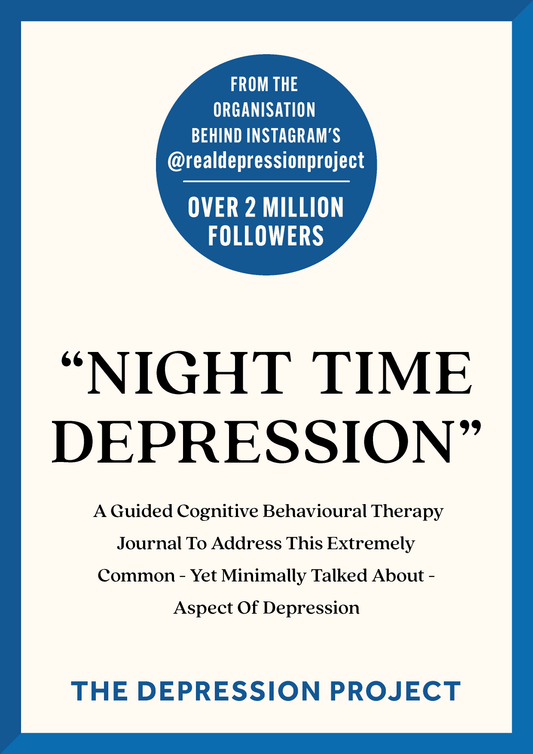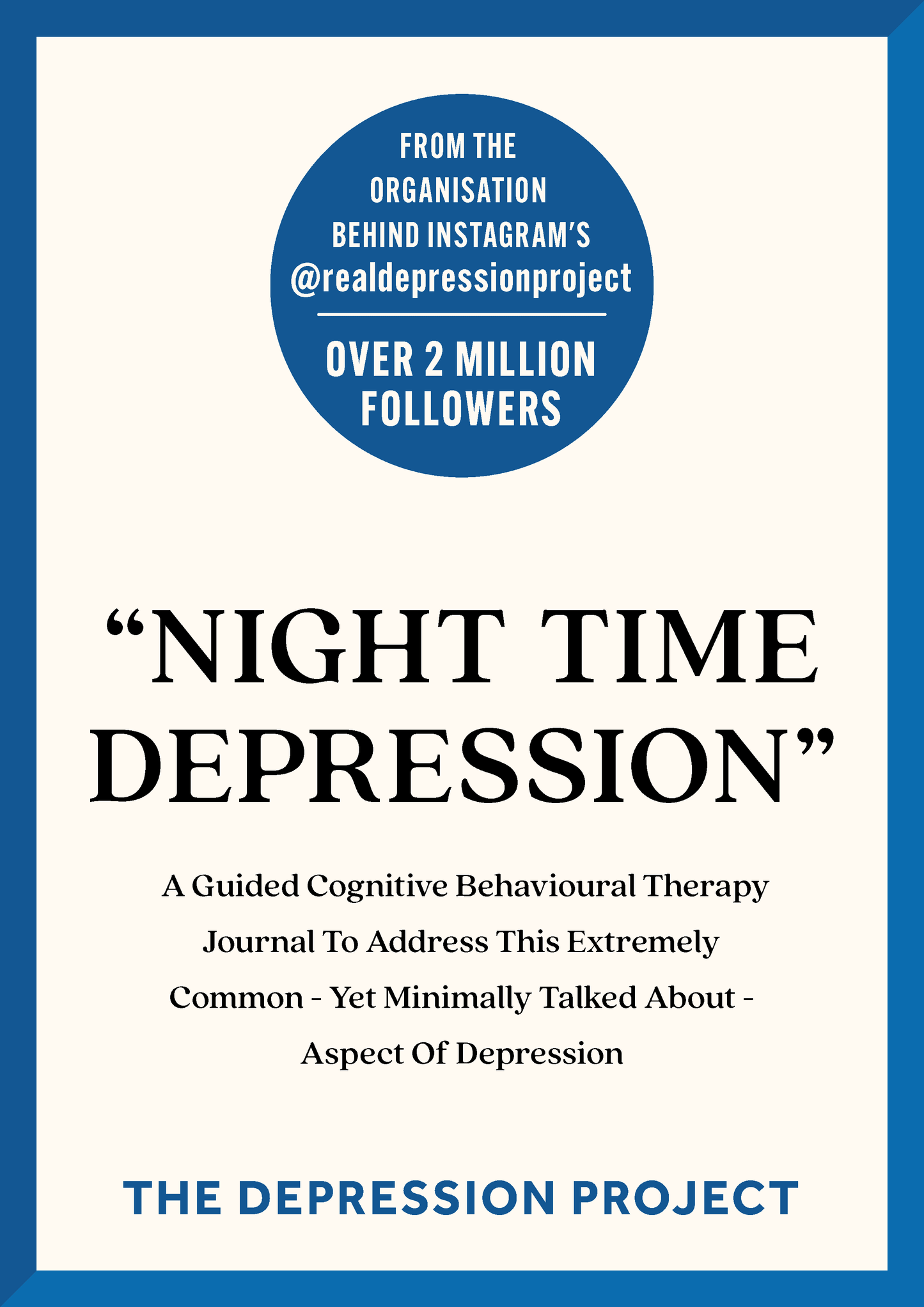
"At night, my depression comes crashing down on me" - can you relate?
“At night, my depression comes crashing down on me.”
“I lie in bed sleepless as my mind races. Negative thoughts, worrying thoughts, regrets about the past, dread for tomorrow. I wish I could turn it off but I can’t.”
“It’s so dark and quiet in bed. There’s nothing to distract you anymore, and you’re forced to face what you don’t want to face.”
“Night time is the worst. I feel so lonely as there’s no-one to talk to. It’s just you and your thoughts, and no matter how exhausted you feel, no matter how much you want to sleep, depression keeps you awake.”
“Sleep never comes easy. I keep replaying scenarios in my head, and toss and turn as I beat myself up over mistakes I’ve made. I feel guilty for not having been more productive throughout the day, and mad at myself for knowing that I’ve now made tomorrow harder. I call myself names and criticise myself, and I wish there was someone I could talk to but it’s 3 a.m. and I’m all alone.”
“The nights feel long and endless when you have depression. Your thoughts torture you and prevent you from sleeping. The pillow is wet from crying. You look at the clock and know you’ll be exhausted tomorrow, and then you cry and cry some more.”
The above quotes from members of our online community characterise what we at The Depression Project refer to as “night time depression”. And, because “night time depression” plagues many people who battle this excruciating illness, we’ve put together this cognitive behavioural therapy-based journal, in order to:
- Help you quieten the intrusive thoughts that keep you awake at night;
- Help you improve your “sleep hygiene” in order to make it easier for you to fall asleep;
- Help you cope with feelings of loneliness that surface at night time in particular.
Here’s A Breakdown Of Exactly What This Journal Will Cover
PART 1: The Importance Of Addressing Your Thoughts Before It’s Time To Go To Sleep
Like we’ve touched upon, a major component of “night time depression” is being so consumed with intrusive thoughts when you’re trying to fall asleep that you’re unable to do so (even if you’re tired). This is something that many people with depression can understandably relate to – since when you have depression, it’s extremely common to experience intrusive thoughts in the form of, for example:
- Rumination about the past or something that happened that day;
- Worrying thoughts, hopeless thoughts and/or dread about tomorrow or something else in the future;
- Negative, judgmental, critical thoughts about who you are as a person and/or something you’ve done or haven’t done.
In saying that, however, throughout the day and up until it’s time to go to sleep, what many people often find is that they’ll be at least partially distracted from their thoughts by whatever it is that they’re doing – such as, for example:
- Working;
- Taking care of their children;
- Attending to their chores and other day-to-day tasks;
- Scrolling through social media on their phone;
- Watching television after dinner.
However, while keeping busy can often distract people from their thoughts throughout the day, at night when they’re trying to fall asleep, there’s no longer anything to distract them, and as a result – BANG! They’ll suddenly find themselves bombarded with intrusive thoughts, and low and behold, they’re unable to fall asleep.
In particular, this explains why so many thoughts often surface at night time: because when it’s just you in the silent darkness trying to fall asleep, you’re forced to confront all of the thoughts that you’ve spent the day distracting yourself from.
Consequently, in the first part of this journal:
- We’ll talk about the importance of addressing your thoughts before you go to sleep - so that by default, you don’t end up doing so at the end of the night when you’re trying to fall asleep;
- Since - as we’ll talk about - journaling is a highly effective method of addressing your thoughts before you go to sleep, we’ll also share with you a wide variety of guided journal prompts to help you do so.
PART 2: How To Improve Your “Sleep Hygiene”
If you have depression and struggle to sleep at night, then in addition to setting aside time to attend to your thoughts throughout the day, we also encourage you to practice good sleep hygiene. In particular, this involves:
- Practicing certain “do’s” which will help relax you before it’s time to sleep; make it easier for you to do so; and contribute to your sleep being deeper, longer lasting and less disrupted than it would otherwise be;
- Avoiding certain “don’ts” which tend to have the opposite effect.
So, in the second part of this journal, we’ll share with you what the “do’s” and “don’ts” of good sleep hygiene are, as well as a guided journal prompt to help you think about the steps you can take to improve your sleep hygiene moving forwards, and put the “do’s” and “don’ts” that we’ll talk about into practice.
PART 3: How To Cope With Feeling Lonely At Night
In addition to struggling to sleep at night because your thoughts are keeping you awake, another contributing factor to “night time depression” is feeling lonely. And, if you can relate, then in the third and final section of this journal, we’ll share with you a wide variety of suggestions from members of The Depression Project’s community about how they cope with feelings of loneliness and how you can, too.
Additionally, these suggestions will also be accompanied by guided journal prompts, in order to help you think about how you can implement one or more of these suggestions as effectively as possible.
FAQ #1: Why should I be confident this journal will help me?
This journal is grounded in cognitive behavioural therapy - which in case you don't know, is a leading form of treatment for depression, anxiety, panic attacks, phobias, personality disorders, and a wide range of other mental health issues.
Additionally, this journal is also written with the warmth, care, encouragement and insight that, with 3,000,000+ followers on social media, The Depression Project has become renowned for :)
FAQ #2: What format does this journal come in?
This journal is available in two different formats for you to choose from:
- PDF - which you will be able to download instantly after purchase, and then print out at your home, office or local printer.
- Paperback (if you live in the US or Canada) - which will be delivered to you within 4-8 business days. Shipping costs are US$7.95 within the US and CAD$14 within Canada. This shipping cost is a flat rate, so whether you order one journal, or multiple journals, the shipping cost will be the same (if you would like to, you'll find the option to add one or more other journals to your cart below so that you can save on shipping). Once your order has been shipped, you will be emailed a number so that you can track it.
FAQ #3: What if I give this journal a try but I don't like it?
We're extremely, extremely confident that you're going to find this journal immensely helpful. But, just in case you don't, the PDF version of this journal comes with a 60 Day, No-Questions-Asked, 100% Moneyback Guarantee!
If you have any questions about this journal, then please feel free to click here and contact us so that someone from our friendly team can answer them for you :)
Otherwise, we hope you choose to get this journal, because we know that you're going to find it really, really helpful!
All our love,
The Depression Project Team.
Format Options

